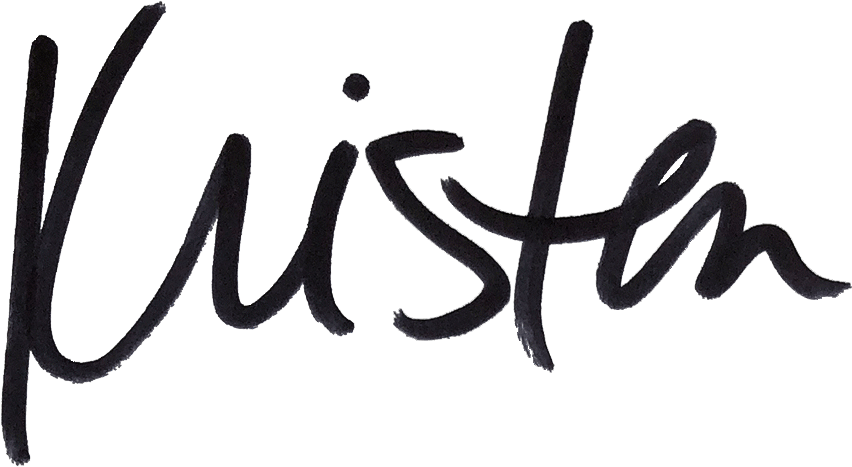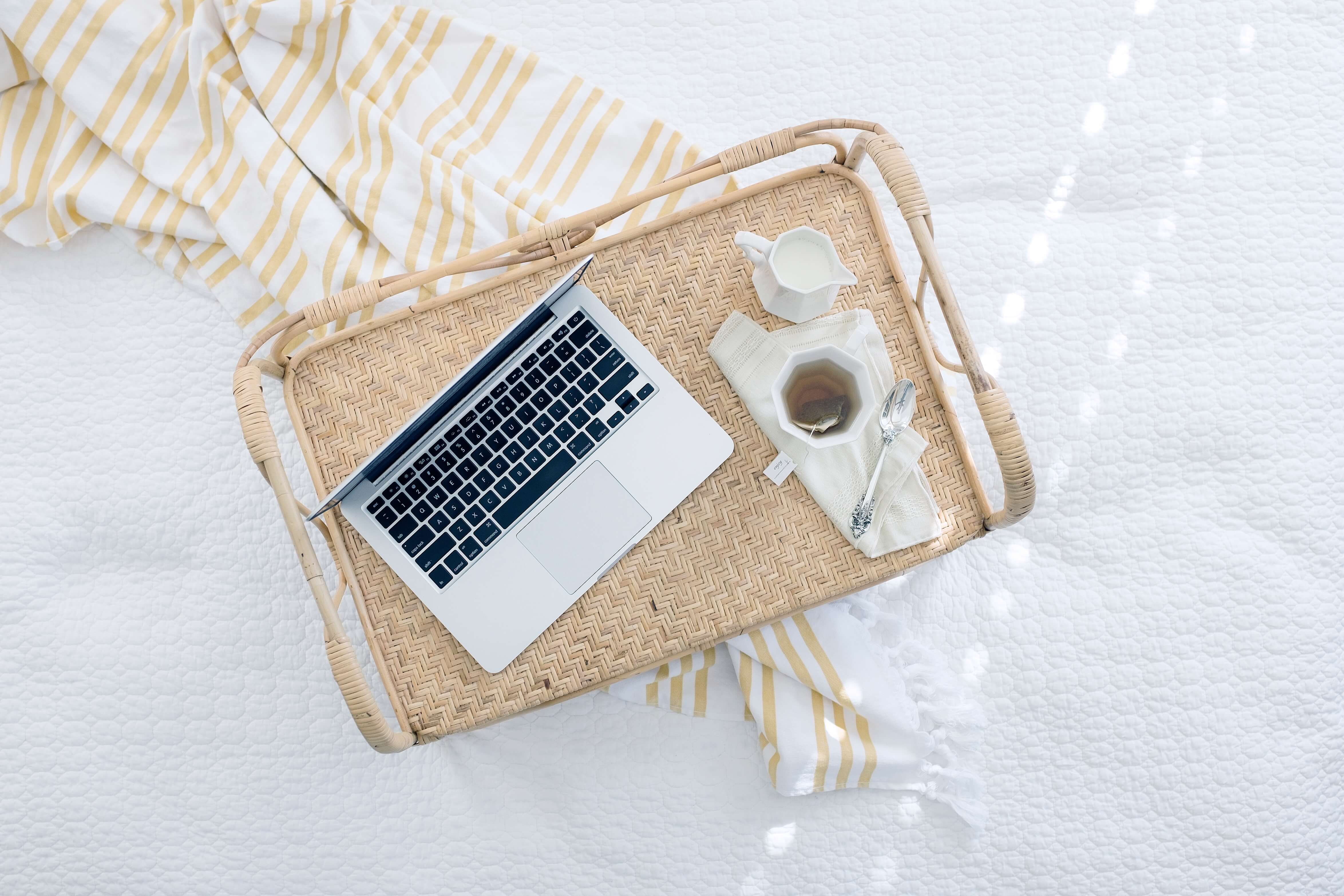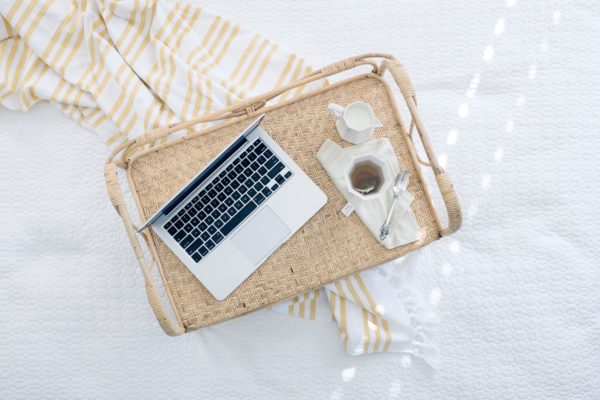As a business owner, you have to deal with money every day in some way or another. But that doesn’t mean you and money are friendly, or even that you and money pay much attention to one another when it isn’t work related. Um. I get it.
In the category of “Things I hide from the rest of the world for $200,” Alex, I’ll take: I grew up in a trailer. Which, not surprisingly, means I grew up in a constant state of “not enough” around money. I hated the thrift stores where we had to shop. I hated that I couldn’t buy the newest jeans or the latest trends and that our books came from the library instead of the bookstore. I resented my used bed linens, my used furniture, and the used magazines Mom picked up for a dime at the Salvation Army. (Seventeen magazine from three months ago is NOT helpful to your developing thirteen-year-old self, thankyouverymuch.)
When I struck out on my own after college, I made a point of buying everything new. So long as it came with the pricetag still on, I was ready to buy it. And restaurants? After years of living in a town so freaking remote that food delivery simply did not exist, I ordered pizza and Chinese food and more pizza with abandon. I embraced my not-love of cooking. I bought new, shiny stuff. I ran rampant over my credit cards and opened more and made a big freaking mess.
Thus, I moved from a place of “not enough”ness around money to a place of sheer and utter denial of debt. Because I am a genius.
I ignored the problem for years, making minimum payments and embracing my good fortune as business took off.
Eventually, I paid off all the cards. Yay! But that doesn’t mean I paid attention to money in any sort of healthy, ongoing way. I clearly defined my money in one of two ways: “enough” or “not enough.” All those smart, intelligent investments I could be making and all those Roth IRAs I could be starting and…::head hits desk, snoring::
I avoided money like my Mom avoids rock concerts. It was there, sure, but I was NOT gonna pay too much attention to it. That stuff had the power to put me in a trailer again. It was much too powerful to manage, so I would just avoid, avoid, avoid…
A few things have changed recently.
Money Not-Avoider Practice #1: Get a money professional in your life. Namely, an accountant.
One: my accountant made me take a monthly salary instead of merely acting like I had taken a monthly salary at tax time. Karl is sure I’m getting the same paycheck every month, which means I can make an actual budget instead of having my income swing wildly from $14,000 to $.07. As you might guess, that’s great! And then awful! And so the cycle of avoidance continues…until you hire someone who loves spreadsheets and tax law to handle that shit for you. Then you’re less stressed and freaked out about everything dollars-and-cents related.
If you’re not ready for an accountant or don’t know where to start, listen to this interview with Connie Vanderzanden. Right now, please, she’s brilliant!
Money Not-Avoider Practice #2: check your credit score.
If you avoid money, you also avoid checking your credit score. (How did I KNOW, right!?)
That’s where Credit Karma comes into play. It’s SUPER fast and easy, and you can use the happy little credit simulator to see what happens if you’re good for the next six months — and what happens if you miss payments and try to open too many new credit cards. Without handing over your credit card and secretly paying God-knows-what surprise fees. I’m not an affiliate for them or anything, so if you’ve got a credit score waiting for you as a bonus with a credit card you own, awesome! Just…knowing is the first step.
Money Not-Avoider Practice #3: the daily check-in.
Just login to your bank’s app and see how much money you have available. Easy, right? (HA that’s a joke! This is SO HARD at first, until….it isn’t.)
This practice keeps you aware without actually having to DO much of anything. The goal is to be less afraid of your money, and checking in every day does just that — it’s exposure therapy meets daily attention.
Money Not-Avoider Practice #4: get grateful.
While the banking app is open, name three things you’re grateful for at the same time. That sounds woo woo as shit, but it’s actually training yourself to associate money with good things. (Because money avoiders don’t associate money with good things, and we can fix it!)
Money Not-Avoider Practice #5: make a date.
Finally, there’s the monthly money date. This is a time to batch your money concerns, attentions, and plans into one 2-hour block of time. It’s just you, your money, and the reward of your choice after you’ve spent some quality time together.
Maybe your reward is a glass of wine, maybe it’s a nice dinner, maybe it’s a trip to the bookstore and you’re not allowed to touch any books until you’ve paid your bills, checked on your accounts, and made a money plan for the next month.
A money date means you’re committed to your financial paying-attention-ness. Doesn’t mean you need to start investing or busting out the C3-RH-22b stock options.
You’re starting to pay attention. And you’re not avoiding money any longer. Those are VERY good places to start.




